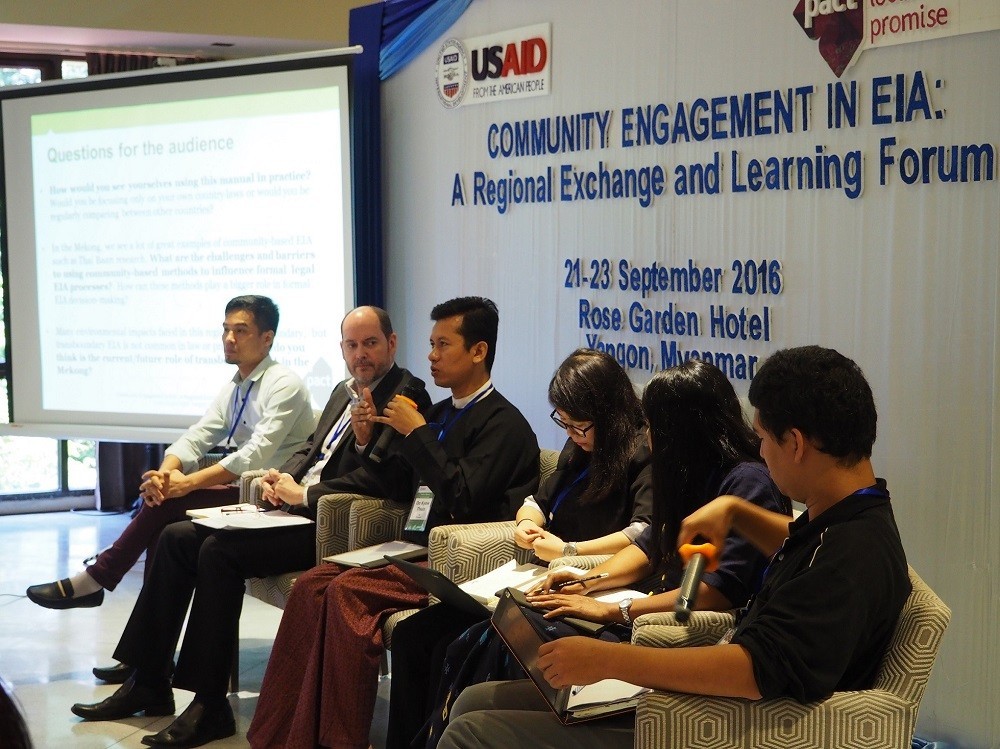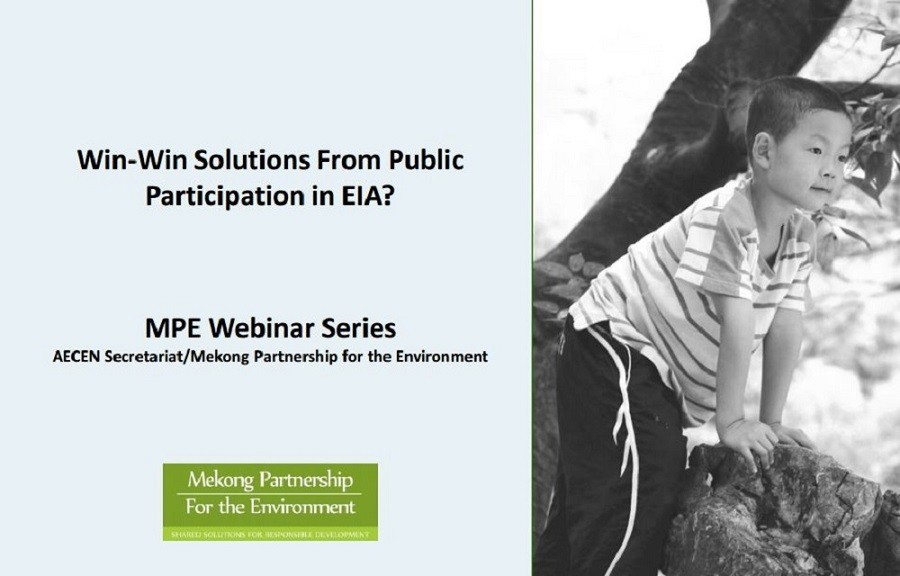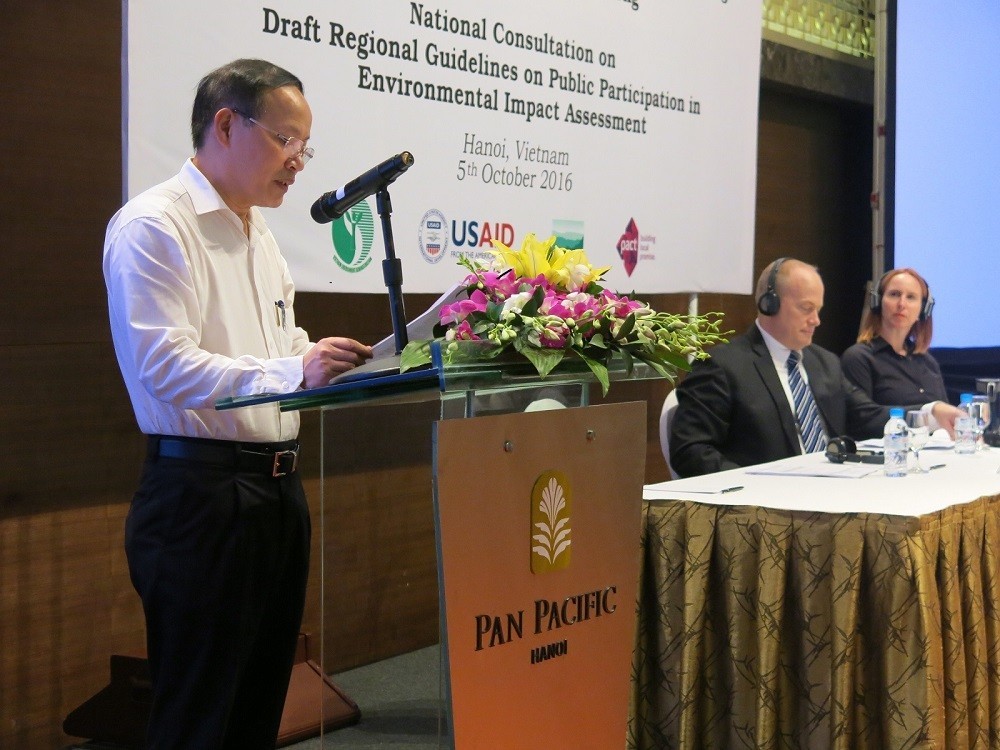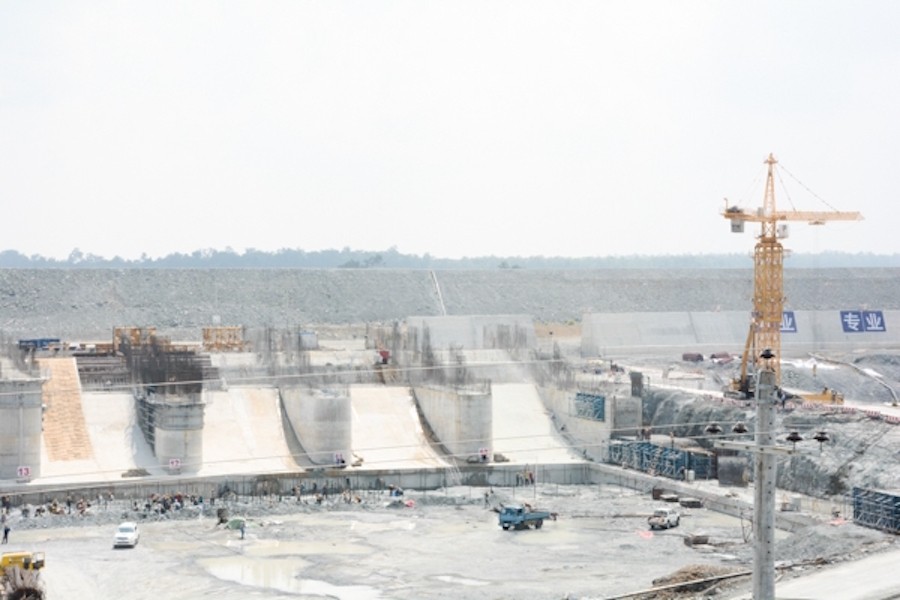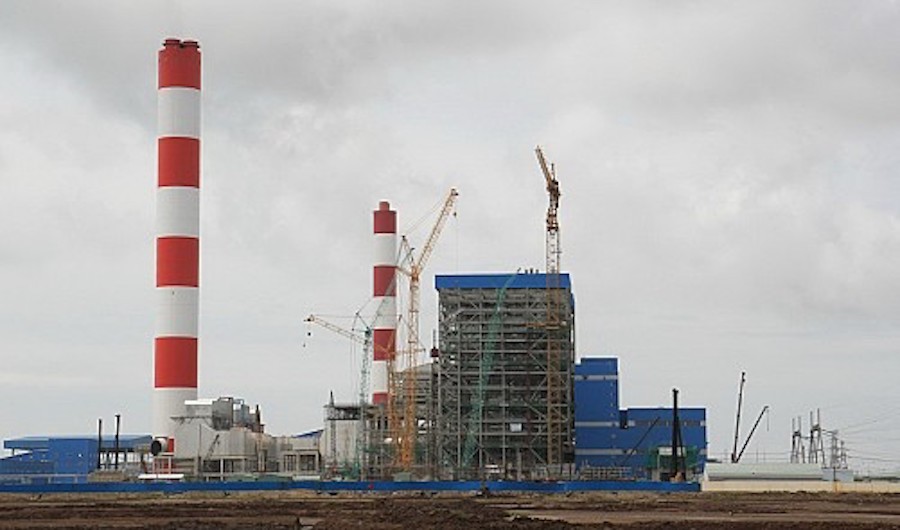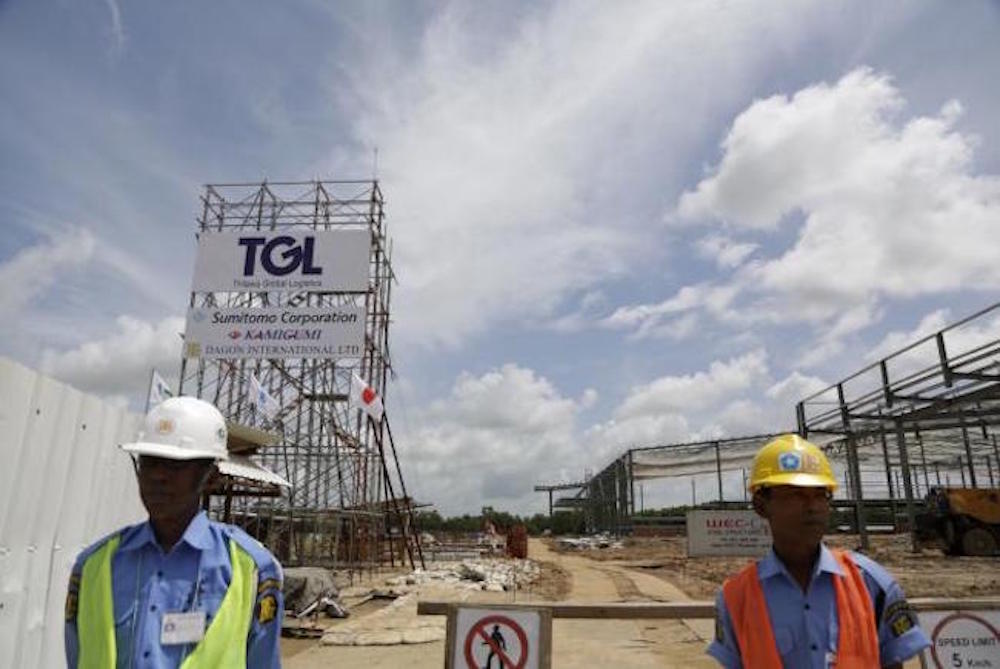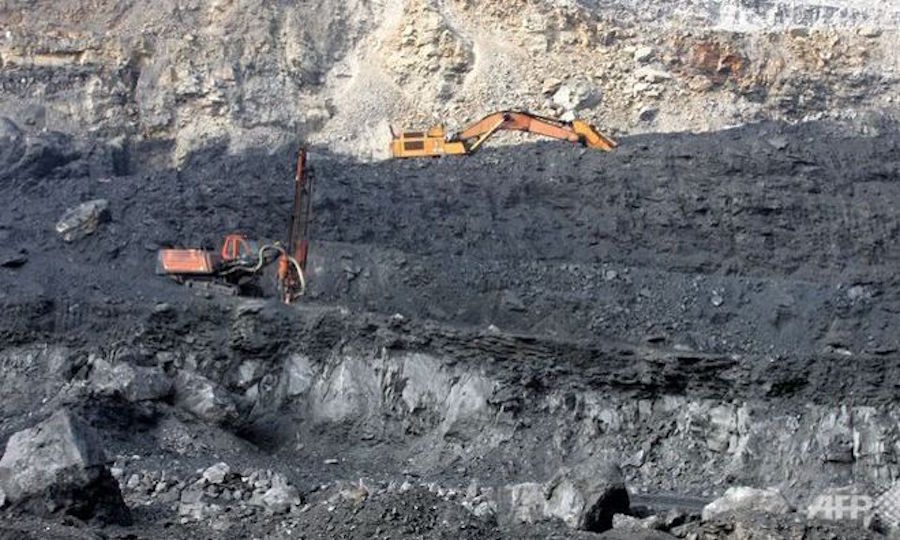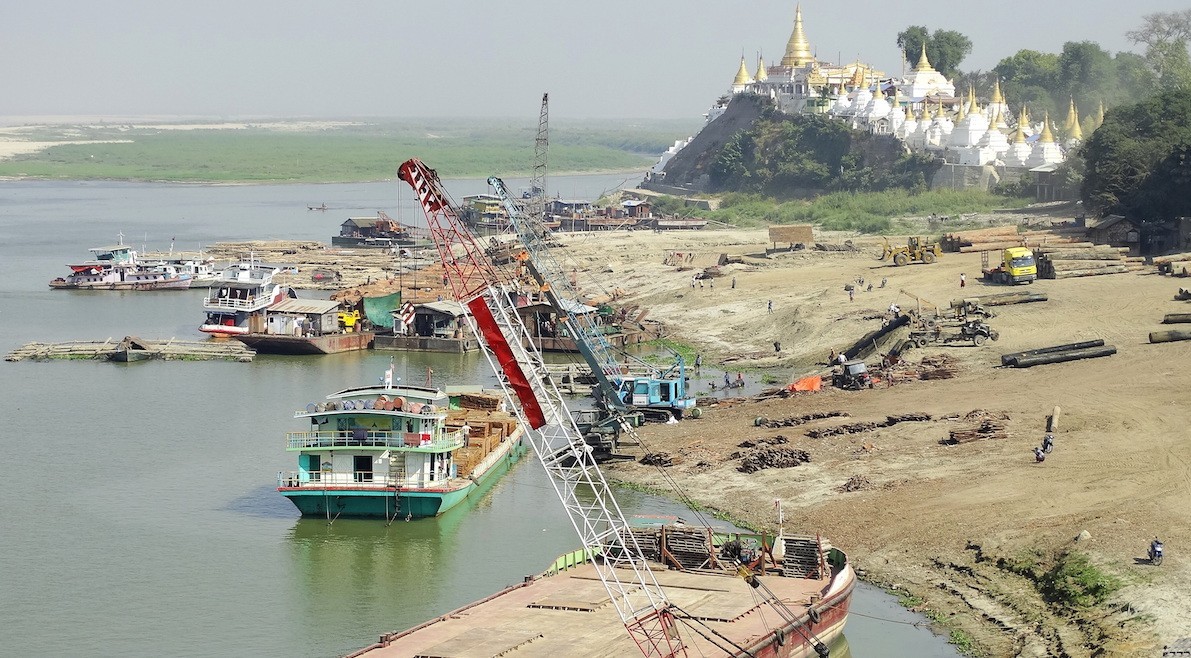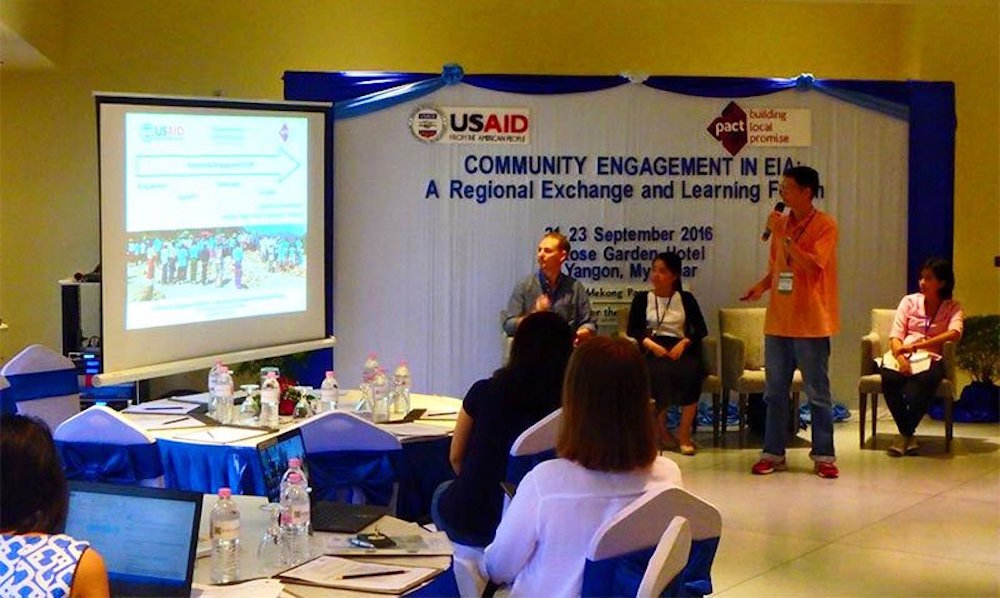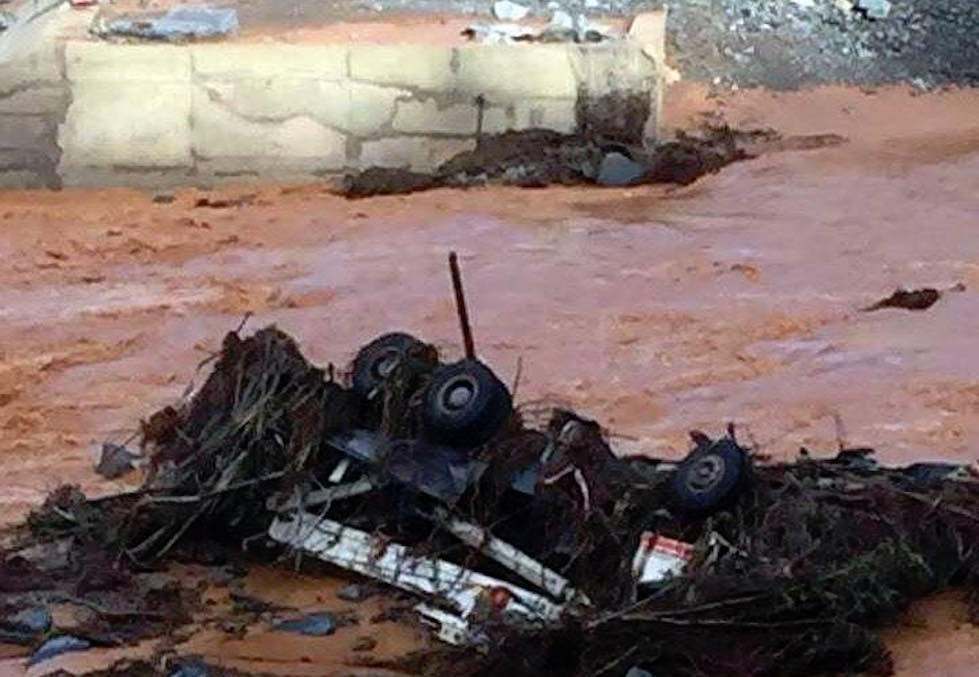This week, 50 representatives from non-governmental organizations (NGOs) across the Mekong region met in Myanmar to share successes and challenges in effectively involving local communities in environmental impact assessment processes. At the “Community Engagement in Environmental Impact Assessment: A Regional Exchange and Learning Forum” in Yangon, participants explored approaches to helping communities constructively engage with businesses and government to ensure sustainable and equitable development in the context of increasing infrastructure investment in the region.
Tag: Environment
Regional EIA Experts learned ‘Win-Win’ Solutions from Public Participation in EIA in 4th MPE Webinar
Asian Environmental Compliance and Enforcement Network (AECEN) in collaboration with Mekong Partnership for the Environment (MPE) organized the Fourth MPE Webinar Series on Win-Win Solutions from Public Participation in Environmental Impact Assessment on 30th August 2016, hosted by Dr. Peter King. Over 28 Government officials from the EIA department, CSOs along with other EIA Practitioners across Asia and representatives from development partners registered for this event.
Public Consultations Underway to Improve Environmental Impact Assessment for Infrastructure Development
More than 50 representatives from private sector companies, communities, civil society organizations, government agencies, environmental impact assessment (EIA) consulting firms gathered today at a public consultation in Hanoi to provide feedback on draft Regional Guidelines on Public Participation in Environmental Impact Assessment processes as a way to ensure these processes involve affected communities. The participants’ input will help improve an effort that is seen by many as critical for the region to address the environmental and social impacts of the growing array of regional development projects such as dams, mines, power plants, and industrial zones.
Lower Sesan II Dam on Schedule
The Lower Sesan II dam is expected to generate electricity as planned by 2017, filling a power void in the country as national grid construction is under way, according to the deputy provincial governor of Stung Treng.
Coal-fired power plants threaten Vietnam deltas
Vietnam’s plan to take its total number of coal-fired power plants to 31 by 2020 has raised environmental concerns.
To minimize costs and the loss of electrical power during transmission, thermal power plants in Vietnam are usually built near large economic centers of the country’s Red River Delta and Mekong Delta regions, where electricity usage is at its highest.
Environmental hazards caused by these types of power plants came to the fore in April 2015, when coal ashes from Vinh Tan 2 Thermal Power Station in Binh Thuan Province spread to nearby residential areas due to low levels of air humidity.
Protests dog Thilawa SEZ as second phase nears start
Over 70 companies across 14 countries have invested more than US$700 million in the Thilawa special economic zone, but local residents affected by the project are still campaigning to have the next phase halted until issues around resettlement, compensation and environmental impact are resolved.
Vietnam province scraps coal plant over environmental concerns
The Mekong Delta’s Bac Lieu Province scrapped plans for a coal-fired thermal power plant to pursue clean-energy options, last week.
The provincial government has requested permission to withdraw from the project to build wind turbines. Bac Lieu is currently home to one of Vietnam’s three wind power plants, the other two are located in Binh Thuan Province just north of the tourist town Mui Ne.
Chipwe, Hsawlaw residents join anti-Myitsone chorus in Kachin State
Residents of Chipwe and Hsawlaw townships in Kachin State have joined growing calls for the government to scrap seven hydropower projects along the Ayeyarwady River, including the controversial Myitsone megadam in neighbouring Myitkyina township.
Regional NGOs meet in Myanmar to improve community involvement in infrastructure decisions
This week, 50 representatives from non-governmental organizations (NGOs) across the Mekong region met in Myanmar to share successes and challenges in effectively involving local communities in environmental impact assessment (EIA) processes.
At the “Community Engagement in Environmental Impact Assessment: A Regional Exchange and Learning Forum” in Yangon, participants explored approaches to helping communities constructively engage with businesses and government to ensure sustainable and equitable development in the context of increasing infrastructure investment in the region, according to a press release September 23.
Hydropower plants or “hydropower bombs”?
The recent incident at Song Bung Hydropower Plant has alerted Vietnam to reconsider the construction of so many hydroelectric plants, which have been compared to “time bombs”.


